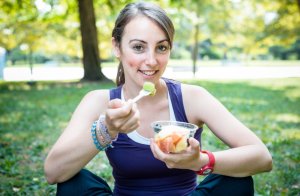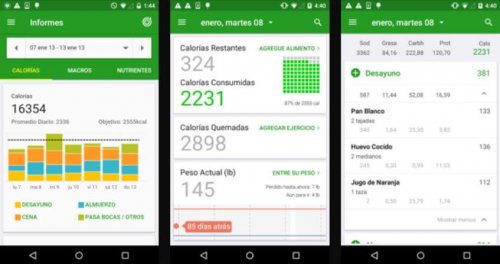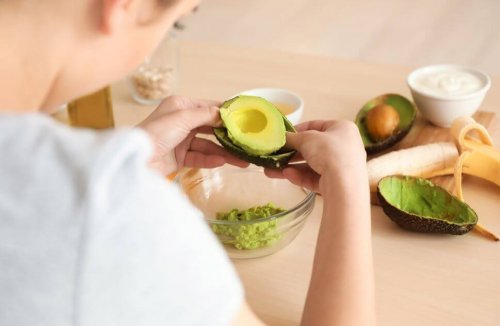Five Foods for Runners

Running is increasingly attracting more followers. Although, runners don’t often realise that the right diet is the basis for better training and can lead to positive results. In addition to buying specific clothing or footwear, we recommend that you consume the following five foods for runners.
Food tips for runners
Firstly, it’s essential to consult with a nutritionist that specializes in sports (or athletes), to plan a specific diet according to your needs. Here are some of the concepts to consider in this regard:
1. Check caloric intake
A person with a sedentary lifestyle, needs to consume approximately 2,000 calories each day. For runners, that amount should be higher—a minimum of 3,000 calories is necessary to counteract the fatigue from training and competitions.

2. Eat five times a day
Breakfast is paramount for athletes—because it provides the right vitamins, proteins, and minerals to start the day. However, we cannot forget other meals.
Runners have to stay organized and plan their meals well. Fulfilling diet schedules helps to keep our bodies continuously nourished and prevents low blood sugar.
3. Add vitamins
With food for runners, you can incorporate all of the vitamins that your body needs. While all vitamins are beneficial, the four most important ones are: A, C, D, and E.
4. Eat before, and after training
Of course, the meal that you consume will be different, depending on the time of day and level of physical activity. Some runners choose to eat fruits or drink a smoothie before running, and eat a handful of nuts when they’re finished. There are others who do this the other way around. In any case, don’t forget to drink enough water to hydrate yourself.

Five foods for runners: include them in your diet
Now we are going to tell you more about the five recommended foods for runners. They have been chosen for their ideal balance of nutrients; perfect to counteract the effects produced by physical exertion.
1. Bananas
It’s the number one ally for athletes in general, and for runners in particular. Some runners eat bananas in the middle of a marathon or during training. This fruit is a great source of sugar and carbohydrates. Furthermore, it instantly provides a “shot” of energy.
Additionally, bananas or plantains are rich in potassium, which prevent cramps due to the loss of electrolytes—typical during demanding exercise.
2. Nuts
Another one of the foods for runners that you should include in your diet. It’s advisable to either eat nuts on their own—a handful is sufficient—at mid-morning or mid-afternoon. They can also be added to yogurt, juices, and smoothies.

Within the large family of nuts, you can find almonds, cashews, and chestnuts. They provide healthy fats, vitamins, minerals, and energy.
3. Eggs
If you are looking for proteins with the maximum potential, eggs can assist you in training, as well as in post-race recovery or preparation. One egg contains 75 calories and many essential amino acids that directly benefit your muscles. You can eat them raw or cooked, but never fried.
4. Avocados
It is essential for a runner to consume their daily quota of healthy fats. This will help to maintain a training rhythm and, at the same time, avoid burnout.

Avocados, similar to olive oil, will provide you with essential fatty acids like no other food can. The best part is that you can eat them smeared on a cracker, chopped into a salad, or mixed in a green smoothie with other fruits and vegetables.
5. Cereals and seeds
There are two main cereals and seeds: quinoa and oats. The first—a pseudo cereal of American origin—is a great source of proteins and carbohydrates, which repairs and strengthens muscles.
The second—ideal for breakfast—also provides healthy carbohydrates, but mostly fiber. This reduces the “bad” cholesterol and satiates our appetite, while regulating the intestine and providing us with instant energy.
Running is increasingly attracting more followers. Although, runners don’t often realise that the right diet is the basis for better training and can lead to positive results. In addition to buying specific clothing or footwear, we recommend that you consume the following five foods for runners.
Food tips for runners
Firstly, it’s essential to consult with a nutritionist that specializes in sports (or athletes), to plan a specific diet according to your needs. Here are some of the concepts to consider in this regard:
1. Check caloric intake
A person with a sedentary lifestyle, needs to consume approximately 2,000 calories each day. For runners, that amount should be higher—a minimum of 3,000 calories is necessary to counteract the fatigue from training and competitions.

2. Eat five times a day
Breakfast is paramount for athletes—because it provides the right vitamins, proteins, and minerals to start the day. However, we cannot forget other meals.
Runners have to stay organized and plan their meals well. Fulfilling diet schedules helps to keep our bodies continuously nourished and prevents low blood sugar.
3. Add vitamins
With food for runners, you can incorporate all of the vitamins that your body needs. While all vitamins are beneficial, the four most important ones are: A, C, D, and E.
4. Eat before, and after training
Of course, the meal that you consume will be different, depending on the time of day and level of physical activity. Some runners choose to eat fruits or drink a smoothie before running, and eat a handful of nuts when they’re finished. There are others who do this the other way around. In any case, don’t forget to drink enough water to hydrate yourself.

Five foods for runners: include them in your diet
Now we are going to tell you more about the five recommended foods for runners. They have been chosen for their ideal balance of nutrients; perfect to counteract the effects produced by physical exertion.
1. Bananas
It’s the number one ally for athletes in general, and for runners in particular. Some runners eat bananas in the middle of a marathon or during training. This fruit is a great source of sugar and carbohydrates. Furthermore, it instantly provides a “shot” of energy.
Additionally, bananas or plantains are rich in potassium, which prevent cramps due to the loss of electrolytes—typical during demanding exercise.
2. Nuts
Another one of the foods for runners that you should include in your diet. It’s advisable to either eat nuts on their own—a handful is sufficient—at mid-morning or mid-afternoon. They can also be added to yogurt, juices, and smoothies.

Within the large family of nuts, you can find almonds, cashews, and chestnuts. They provide healthy fats, vitamins, minerals, and energy.
3. Eggs
If you are looking for proteins with the maximum potential, eggs can assist you in training, as well as in post-race recovery or preparation. One egg contains 75 calories and many essential amino acids that directly benefit your muscles. You can eat them raw or cooked, but never fried.
4. Avocados
It is essential for a runner to consume their daily quota of healthy fats. This will help to maintain a training rhythm and, at the same time, avoid burnout.

Avocados, similar to olive oil, will provide you with essential fatty acids like no other food can. The best part is that you can eat them smeared on a cracker, chopped into a salad, or mixed in a green smoothie with other fruits and vegetables.
5. Cereals and seeds
There are two main cereals and seeds: quinoa and oats. The first—a pseudo cereal of American origin—is a great source of proteins and carbohydrates, which repairs and strengthens muscles.
The second—ideal for breakfast—also provides healthy carbohydrates, but mostly fiber. This reduces the “bad” cholesterol and satiates our appetite, while regulating the intestine and providing us with instant energy.
This text is provided for informational purposes only and does not replace consultation with a professional. If in doubt, consult your specialist.








